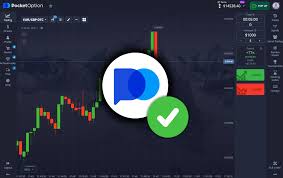
Understanding Pocket Option Tax Documents: Essential Guide for Traders
As a trader using platforms like Pocket Option, it is vital to understand the financial implications and obligations that come with online trading. Among these are pocket option tax documents pocket option tax documents, which play a significant role in ensuring compliance with tax regulations. This article dives deep into the various aspects of tax documentation for Pocket Option users and provides essential guidance on how to navigate this crucial topic.
What are Pocket Option Tax Documents?
Tax documents are records required for reporting earnings and capital gains generated from trading activities. For users of Pocket Option, these documents include transaction records, profit and loss statements, and specific IRS forms if you are located in the United States. It is crucial to have these documents ready for tax season to properly report your trading activities and comply with local regulations.
Types of Tax Documents You May Need
Depending on your trading frequency and volume, you may need various tax documents:
- Transaction History: This includes all your buy and sell orders, indicating the dates, amounts, and prices of transactions.
- Profit and Loss Statements: An overview of your annual trading performance, detailing total gains and losses.
- Form 1099: If you earn more than a certain amount, Pocket Option may issue a Form 1099 to report your earnings to the IRS.
- Capital Gains Statements: Documents detailing profits from asset sales, important for calculating taxes owed on capital gains.

The Importance of Accurate Documentation
Accurate documentation is essential for several reasons:
- Tax Compliance: Failing to report income can lead to audits, penalties, and potential legal action from tax authorities.
- Financial Planning: Understanding your profits and losses can aid in future trading strategies and investment decisions.
- Expense Deductions: Traders can often deduct certain expenses related to trading, and accurate records make it easier to claim these deductions.
How to Keep Track of Your Trading Activity
Maintaining proper records of your trading activity is crucial. Here are some best practices for keeping track of your transactions:
- Use Trading Software: Many traders find it beneficial to use trading analytics software that provides detailed reports on their trading activities. It can automatically generate the necessary documents.
- Keep a Trading Journal: Document your trades, reasons for entering/exiting positions, and market conditions. It can be useful for both reflection and tax purposes.
- File Regularly: Instead of waiting until the end of the year, try to maintain your records on a monthly or quarterly basis to lessen the burden when tax season arrives.
Tax Regulations and Pocket Option Users
Tax regulations can vastly vary by country and region. It is crucial for Pocket Option users to familiarize themselves with their local tax laws. Most countries classify profit derived from trading as taxable income, but the tax rates and regulations can differ significantly. For example:
- In the United States: Traders typically need to report their profits on Schedule D of the Form 1040. Additionally, they may need to account for short-term versus long-term capital gains, which are taxed at different rates.
- In the UK: Profits from trading can be subject to Capital Gains Tax (CGT), and traders may have an annual tax-free allowance.
It’s important to consult a tax advisor familiar with tax laws related to online trading for up-to-date advice tailored to your professional situation.
Consulting with a Tax Professional
Due to the complexities associated with trading taxes, consulting a tax professional can be beneficial. A qualified tax advisor can provide insights into:
- Tax Strategy: Help you understand options for minimizing tax liabilities through effective strategies.
- Record Keeping: Offer advice on the documents that are crucial to maintain and how to organize them efficiently for audits.
- Shape Future Decisions: Provide guidance on the implications of your trading activities on your overall financial picture.
Common Mistakes Traders Make
When dealing with Pocket Option tax documents, traders often make mistakes that can lead to complications. Some of the most common errors include:
- Inadequate Record Keeping: Not maintaining detailed records can lead to difficulties during tax reporting and potential issues with tax authorities.
- Mixing Personal and Trading Finances: Failing to separate personal expenses from trading expenses can lead to confusion and possible tax ramifications.
- Underreporting Income: Accidentally omitting trades or failing to account for all profits can lead to penalties when caught by tax authorities.
Final Thoughts
Being a trader on platforms like Pocket Option can be rewarding, but it also comes with responsibilities, especially regarding tax compliance. Understanding the pocket option tax documents and how to manage them is critical for continued success in trading. By keeping accurate records, understanding the regulations that apply to your jurisdiction, and consulting with financial experts when needed, you can navigate through the complex world of tax obligations with confidence.